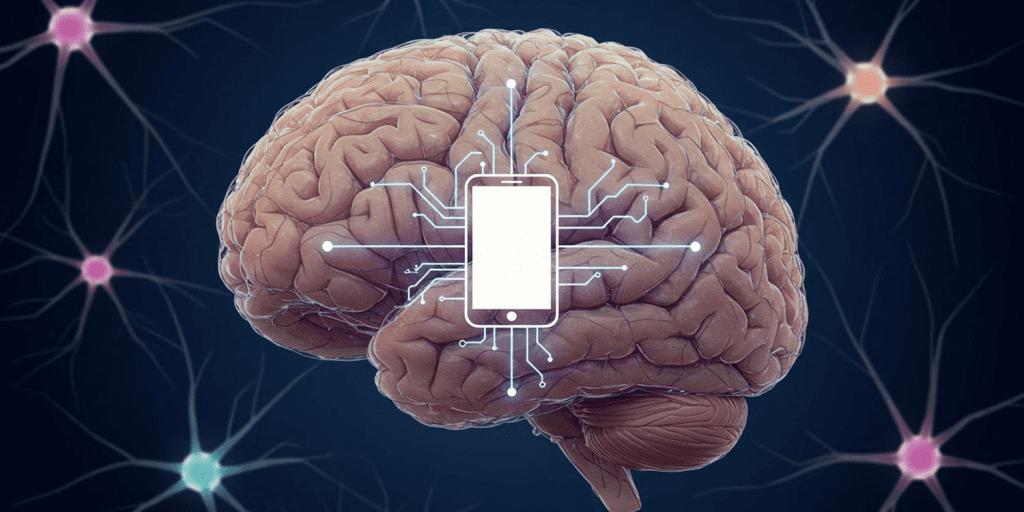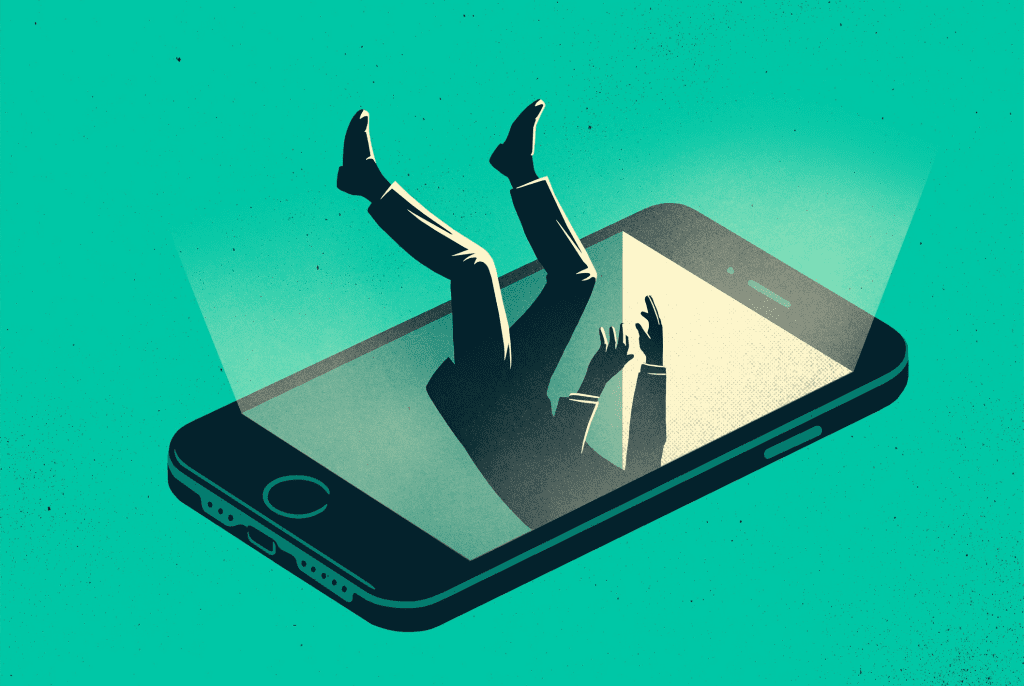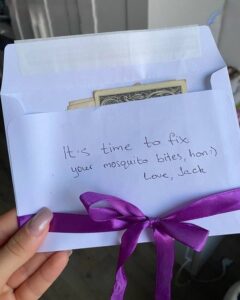Smartphones have become an inseparable part of modern life, revolutionizing communication, work, and entertainment. However, excessive smartphone use (ESU) has been linked to various negative consequences, including addiction-like behaviors, impaired mental health, and diminished attention spans. Recent studies suggest that smartphone-related cues can trigger neural responses similar to those seen in substance addiction, reinforcing compulsive usage patterns. Understanding the effects of smartphone restriction on cue-related neural activity can provide valuable insights into developing interventions for individuals struggling with ESU.
The Role of Cue Reactivity in Smartphone Use

Cue reactivity (CR) refers to the brain’s response to stimuli associated with a habitual or addictive behavior. In the case of smartphone use, cues may include notification sounds, phone screens lighting up, or simply seeing a smartphone in one’s environment. These cues can activate reward-related brain regions, reinforcing the compulsive urge to check the device.
Research has shown that individuals with excessive smartphone use exhibit heightened neural responses to smartphone-related cues, similar to those observed in substance addiction. This heightened sensitivity may contribute to difficulty in controlling smartphone usage, leading to a cycle of compulsive checking and craving.
Investigating Neural Activity Changes Through Smartphone Restriction
To better understand how short-term smartphone restriction influences brain activity, researchers conducted a study using functional MRI (fMRI) to measure changes in cue-related neural responses over 72 hours of smartphone abstinence. The study involved 25 young adults who were regular smartphone users.
Video : What Happens To Your Brain When You Mindlessly Scroll?
Study Design and Methods
- Participants were instructed to refrain from using their smartphones for 72 hours.
- A cue-reactivity task was designed, where participants were exposed to images of smartphones (both active and inactive) as well as neutral objects.
- Functional MRI scans were conducted before and after the restriction period to analyze changes in brain activity.
- Psychometric assessments were used to measure craving, self-control, and emotional responses associated with smartphone use.
Key Findings: How the Brain Adapts to Smartphone Restriction
1. Reduced Activation in the Reward System
One of the most striking findings was a significant reduction in activity in the nucleus accumbens and anterior cingulate cortex after 72 hours of smartphone restriction. These brain regions are heavily involved in reward processing and habit formation.
- The nucleus accumbens is associated with motivation and reinforcement learning. High activation in this area suggests strong craving and compulsive behavior.
- The anterior cingulate cortex plays a role in decision-making and impulse control. Reduced activity here indicates that participants may have experienced less compulsion to check their smartphones.
These findings suggest that even a short break from smartphone use can lead to neuroplasticity, allowing the brain to become less reactive to smartphone-related cues.
2. Alterations in Dopamine and Serotonin-Linked Activity
Further analysis using neurotransmitter probability maps revealed that activity changes in the reward system were closely linked to dopamine and serotonin receptor probabilities.
- Dopamine is a key neurotransmitter in reward-seeking behavior and addiction.
- Serotonin is involved in mood regulation and impulse control.
The findings suggest that smartphone restriction may influence neurochemical processes that drive compulsive behaviors. This could explain why some people feel withdrawal-like symptoms, including restlessness and anxiety, when they suddenly stop using their phones.

3. Increased Engagement of the Parietal Cortex
Another notable result was the increased activity in the parietal cortex, a region associated with attentional control and sensory processing.
- This suggests that participants became more aware of their environment and less preoccupied with smartphone-related distractions.
- Heightened parietal cortex activity was correlated with reduced craving scores, indicating improved cognitive control over impulsive smartphone use.
This supports the idea that limiting smartphone use can enhance focus and attentional regulation, reducing dependency on digital devices.
4. Reduced Compulsive Checking Behavior
Behavioral assessments showed that participants experienced a significant decrease in the urge to check their smartphones over time. This aligns with the observed neural changes in reward sensitivity and impulse control.
Participants also reported improvements in:
- Sleep quality: Reduced exposure to blue light and nighttime scrolling led to better sleep patterns.
- Social interactions: Without constant phone distractions, participants engaged more with people around them.
- Mental well-being: Several individuals noted feeling less anxious and more present in their daily activities.
Implications for Smartphone Addiction and Digital Detox Strategies

The findings of this study have significant implications for individuals struggling with excessive smartphone use. While a complete break from smartphones may not be feasible for everyone, implementing digital detox strategies can help manage usage and mitigate negative effects.
1. Scheduled Smartphone Breaks
- Taking regular breaks from smartphone use, even for a few hours a day, can help reset neural responses to digital cues.
- Setting specific times for checking messages rather than responding to every notification can reduce compulsive checking.
2. Mindful Technology Use
- Practicing conscious smartphone use by turning off unnecessary notifications and using grayscale mode can help decrease reliance on digital stimuli.
- Engaging in non-digital hobbies, such as reading, exercise, or meditation, can strengthen attention control and reduce smartphone dependency.
3. Sleep Hygiene and Nighttime Restrictions
- Avoiding smartphone use one hour before bed can improve sleep quality by preventing blue light exposure.
- Using do not disturb or airplane mode at night can minimize the temptation to check notifications.
4. Awareness Campaigns and Education
- Schools, workplaces, and mental health professionals can promote awareness of the impact of excessive smartphone use on brain function.
- Implementing digital wellness programs can encourage balanced technology use.
Video : Cell Phones Affect Brain Activity

Conclusion: How Smartphone Restriction Reshapes the Brain
The study provides compelling evidence that even a short period of smartphone restriction can lead to measurable changes in brain activity. The observed reductions in reward-related neural responses, coupled with increased attentional control, suggest that limiting smartphone use can promote cognitive flexibility, impulse control, and overall mental well-being.
As smartphone addiction continues to be a growing concern, understanding the neurological basis of cue-reactivity and digital dependency is crucial. These findings highlight the importance of incorporating healthy technology habits to ensure that smartphones remain tools for convenience rather than sources of compulsive behavior.
By making small adjustments in smartphone usage, individuals can foster better focus, improved mental clarity, and greater overall life satisfaction. So, why not start with a 72-hour break and see how your brain adapts?
My Husband Gifted Me Money for Breast Implants and a Nasty Note for My Birthday—I Taught Him a Harsh Lesson

Nikkie thought she had the perfect marriage until her husband, Jack, gave her a cruel birthday gift that shattered her self-esteem. Jack’s obsession with perfection pushed Nikkie to devise a clever plan to reclaim her worth and teach him an unforgettable lesson.
I’ve been married to Jack for over a year, but we’ve been together for six. Initially, it felt like a fairy tale. Jack was my best friend, my confidant, and the love of my life. Our relationship was filled with laughter, late-night talks, and a bond that felt unbreakable.
If someone had told me a year ago that my prince charming would turn into a superficial stranger, I would have laughed it off. But here I am, on the brink of unraveling a story that broke me to pieces.
It began six months ago when Jack’s innocent trip to the gym spiraled into an obsession that shattered my self-esteem and brought our once-perfect world crashing down.
It started subtly. Jack would scroll through Instagram, showing me pictures of fitness models with the “perfect” 90-60-90 figures. “Look at her, Nikkie,” he’d say. “Isn’t she stunning? Imagine if you had a body like that.”
I laughed it off at first, thinking it was just harmless admiration. But the comments kept coming. “You’d look amazing with a little more up top,” Jack said one evening. “Have you ever thought about getting breast implants?”
Each remark felt like a tiny dagger. I started to see myself through Jack’s eyes, and it wasn’t pretty. My confidence dwindled to nothing.
But the last straw came on my birthday a month ago. The day started with excitement. Jack woke me up with a bouquet of flowers and handed me an envelope. Expecting a heartfelt letter or a romantic gesture, I tore it open, only to find a stack of cash and a note: “Time to upgrade those mosquito bites.”

My jaw dropped. I could feel the heat rising to my cheeks, my stomach churning with disbelief and fury. Jack was beaming, expecting gratitude.
“Do you like it?” he asked, eager and oblivious.
“You want me to get… breast implants?” I managed to ask.
He nodded, missing the storm brewing inside me. “I’ve been thinking about it for a while. You’d look amazing with a little enhancement.”
I swallowed hard, forcing down the bile. “Thank you, Jack,” I said, my voice steady. “This is… unexpected.”
Over the next few days, I played the part of the grateful wife perfectly. “I called the clinic today,” I’d tell him casually over dinner. Jack’s eyes would light up every time, not noticing the underlying steel in my voice.
Meanwhile, I was formulating my plan. Instead of booking a plastic surgeon, I used the money for a complete medical check-up. I deserved to know I was healthy, inside and out, regardless of Jack’s superficial standards.
With the rest of the money, I invested in myself. I joined a gym to feel strong and confident again. I didn’t tell Jack about my newfound routine. I woke up early, hit the gym, and returned home before he noticed.
One evening, as I was getting ready for bed, Jack caught me off guard. “You seem different lately,” he remarked. “I can’t wait to see the final result.”
“You’ll see soon enough,” I replied, smiling to myself.
On the morning of my supposed surgery, I left the house with a bright smile. “Wish me luck,” I said, giving Jack a kiss. He hugged me tightly, whispering, “You’re going to look incredible. This is going to change everything.”
“You’re right,” I said, a steely edge to my voice.
Instead of heading to a clinic, I pampered myself at a luxurious spa. Meanwhile, I had arranged for a locksmith to change the locks on our house.



Leave a Reply